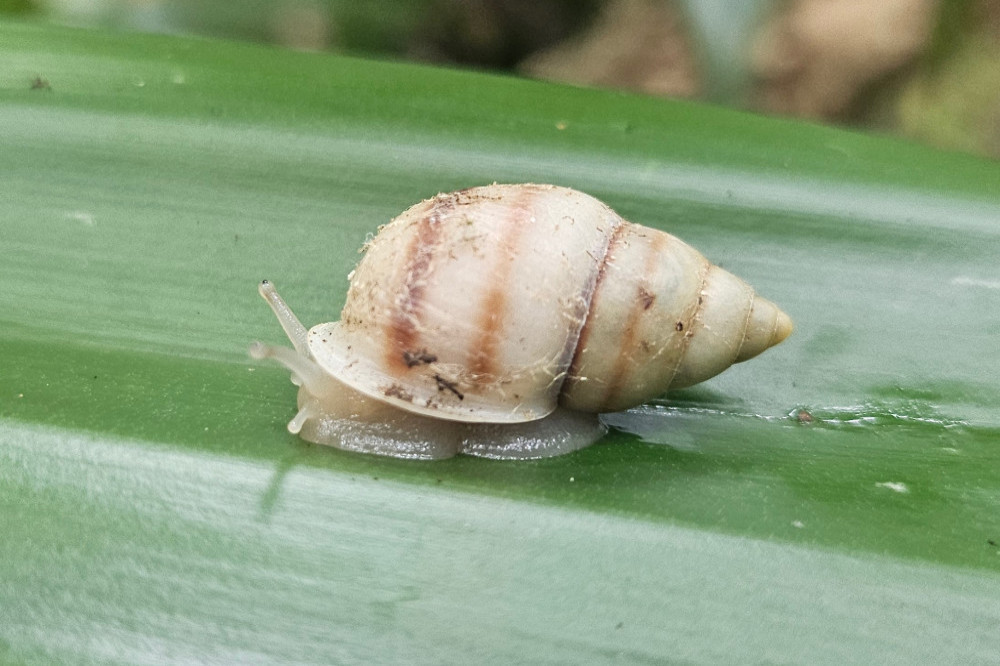Over 6,000 'extinct' snails have been released back into the wild.

Partula tohiveana snails are back in the wild (c) ZSL
Conservationists have found born-in-the-wild adult Partula tohiveana in French Polynesia, meaning that the precious molluscs have successfully established themselves on the islands.
The momentous discovery follows a global conservation effort spanning 40 years and was made during the annual reintroduction of the zoo-bred Extinct in the Wild and Critically Endangered snails - which this year saw zoos across the globe restore more than 6,000 snails to Moorea.
A team, led by the Zoological Society of London's Senior Curator of Invertebrates and Fish Paul Pearce-Kelly, found unmarked Partula tohiveana and proof that reintroduced snails have been successfully bred in the region.
This means that the snails can now be considered established and conservationists will start the process of downlisting the snails from Extinct in the Wild to Critically Endangered on the International Union for Conservation of Nature's (IUCN) Red List.
Pearce-Kelly said: "Though little these snails have great cultural, scientific and conservation value. Partula snails have always been part of Polynesia's rich cultural heritage and play an important role in the ecological health of their forest habitats. They've also been studied for over a century for the insights they give into how species evolve in isolated environments. Most recently, they're providing a valuable conservation model for helping hundreds of endangered island species.
"This collaborative conservation effort is playing a crucial role in saving these species from extinction. It's a powerful example of how conservation zoos can combat biodiversity loss. At a time when nature faces unprecedented challenges, these small snails are a symbol of hope for global wildlife."

